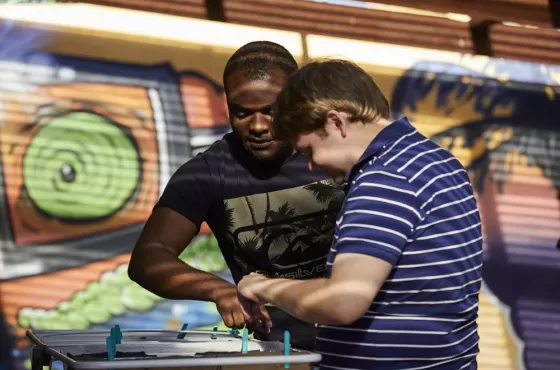The National Disability Insurance Scheme (NDIS) in Australia provides a range of supports for people living with disability. Two key components of the NDIS are Supported Independent Living (SIL) and Community Participation (CP) - but do you know the difference?
In this blog, we will explore the differences between SIL and CP, highlighting their purposes, benefits, and how they contribute to enhancing the lives of people living with disability.
What is Supported Independent Living?
Supported Independent Living (SIL) is a core support within the NDIS, designed to assist participants to live as independently as possible.
SIL provides funding for support services necessary for daily living activities. This support enables participants to develop skills to live independently, fostering greater autonomy.
Some examples that SIL may include various forms of assistance, such as:
- personal care,
- household tasks,
- meal preparation,
- managing finances and;
- accessing the community.
It can be delivered in different settings, including group homes, shared accommodation, or individualised living arrangements. SIL aims to create a safe and inclusive environment that promotes personal growth, community integration, and social connections.
Only about 5-6% of NDIS participants are funded for SIL.
What is Community Participation?
Community Participation (CP) is another essential component of the NDIS, emphasising the active engagement of participants in community life.
CP funding enables participants to access various activities, programs, and services that promote social inclusion, skill development, and community connections.
CP supports can include:
- participation in sports and recreational activities (for example bowling),
- attending educational courses,
- joining clubs or interest groups,
- volunteering and
- engaging in community events.
The aim of CP is to enhance social skills, build relationships, and foster a sense of belonging within the wider community. CP acknowledges the importance of social interaction, personal development, and community involvement in improving the overall quality of life for people with disability.
What are the differences and benefits between SIL and CP?
While SIL focuses on providing support and accommodation for independent living, CP is centered around community engagement and participation.
SIL primarily addresses the practical aspects of daily living, whereas CP emphasizes the social and recreational aspects.
Both supports are essential and complement each other in supporting people with disability to lead fulfilling lives.
SIL enables independence and self-care skills, while CP encourages social inclusion, skill development, and building relationships within the community.
In summary, SIL and CP are integral components of the NDIS, each serving unique purposes in empowering people with disability to thrive independently and actively participate in their communities.
Lighthouse Disability primarily provides a SIL service to our customers. Whilst some other disability services organisations provide CP to non-SIL customers, Lighthouse Disability only provides CP to its current SIL customers.
The SIL and CP support process can be quite complex and daunting, but please know we're here to help.
